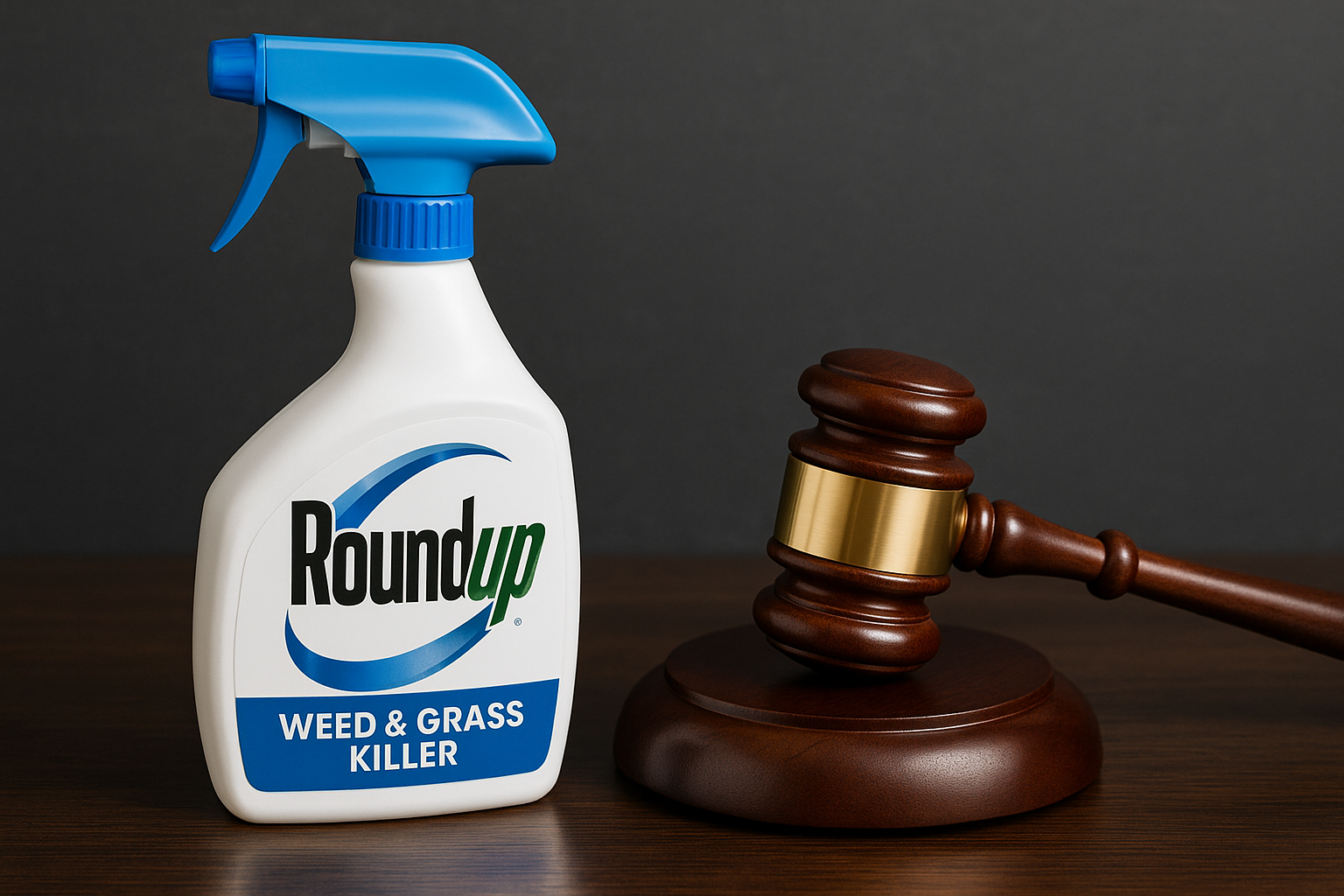Many people used Roundup weed killer for year without knowing the risk. They sprayed it on farm school ground garden and public park. Over time, thousands of users developed serious illnesses. Many of them received a diagnosis of non Hodgkin lymphoma or other cancer.
Families began asking questions. They discovered internal document and scientific studies linking glyphosate Roundup main ingredient to cancer. Lawsuit started piling up against Monsanto the original maker of Roundup and Bayer which bought Monsanto in 2018.
These lawsuit have not slowed down. As of 2025 thousand of case remain active in federal and state court. Billion dollar verdict have already been awarded to victim. More settlement are expected this year as pressure build on Bayer to resolve remaining claim.
This guide gives you a clear look at the Roundup lawsuit. You will learn about major verdicts, ongoing settlements, scientific findings, and legal strategies. You will also see who can file a claim and what steps to take if you believe Roundup harmed you or a loved one.
What Is the Roundup Lawsuit?
Roundup first appeared in 1974 as a powerful weed killer. Monsanto designed it to help farmer and gardener control unwanted plant. The product quickly became popular across the United State.
It main chemical glyphosate is now linked to cancer. Studies and health agencies found that frequent exposure can raise the risk of non Hodgkin lymphoma. Many user say they were never warned about these danger.
In 2018 Bayer bought Monsanto and took on it legal problems. Lawsuit began to flood court nationwide. Plaintiff say Monsanto knew about the cancer risk but kept selling Roundup. They accuse the company of hiding negative research and promoting false studies that made the product appear safe.
Bayer has already paid billion to settle earlier claim. Despite these payout thousand of lawsuit are still active. Victim continue to seek justice and compensation as new evidence emerge.
Why Are People Suing Bayer and Monsanto?
Many workers and homeowners used Roundup for years. Later, they received cancer diagnoses. Studies show glyphosate user have a 40% higher chance of developing non Hodgkin lymphoma.
Main claims include:
-
Monsanto failed to warn about cancer risks
-
Roundup was unsafe for public use
-
The company misled users about safety
Anyone who used Roundup over time and later developed cancer could have a case.
This includes:
-
Farm and landscaping workers
-
School and park staff
-
Home gardeners
You must show medical proof of cancer and evidence of repeated Roundup use. Most claims focus on exposure before 2020. Bayer began changing its formula that year.
Major Roundup Lawsuit Verdict (2018 2025)
Courts have issued large awards against Bayer:
-
$2.25 billion – Pennsylvania, January 2024. Jury found Monsanto grossly negligent.
-
$2.1 billion – Georgia, March 2025. Internal emails showed attempts to hide health risks.
-
$611 million – Missouri, 2023. Upheld in 2025.
-
$175 million – Pennsylvania, 2023. Awarded to a retired groundskeeper.
These verdicts encouraged new lawsuits. They also pushed Bayer toward more settlements.
Settlement Updates in 2025
Bayer settled 100,000 cases in 2020 for $11 billion. The fight did not end.
As of mid-2025:
-
Over 4,400 federal MDL cases remain open
-
Thousands of state lawsuits continue
-
Bayer is negotiating another major settlement in Missouri
-
Bayer paid $6.9 million to New York for false safety ads
-
Bankruptcy protection for Monsanto is being considered
Timeline of the Roundup Lawsuit
-
1974: Monsanto releases Roundup
-
2015: WHO labels glyphosate “probably carcinogenic”
-
2018: Bayer buys Monsanto
-
2020: $11 billion settlement covers 100,000 cases
-
2023–2024: Juries award billions to plaintiffs
-
2025: Supreme Court reviews federal preemption. Bankruptcy talk continue
Does Glyphosate Cause Cancer?
Expert disagree.
-
WHO say glyphosate is probably carcinogenic.
-
EPA and European regulator say it is unlikely to cause cancer.
Studies link frequent Roundup use to higher cancer risk. Internal Monsanto documents suggest the company influenced research to favor safety claims.
How Are These Lawsuits Different?
Roundup lawsuits fall under product liability law. Plaintiffs must prove:
-
Roundup was dangerous
-
Monsanto failed to warn users
-
The product caused their illness
Bayer defends itself using federal preemption under FIFRA. The argument is that EPA-approved labels prevent state lawsuits.
Courts are divided:
-
Ninth and Eleventh Circuits allow lawsuits to proceed
-
Third Circuit sides with Bayer
The Supreme Court may issue a final decision soon.
Bayer’s Legal Strategy
Bayer is trying to reduce liability through several steps:
-
Considering bankruptcy protection
-
Pushing for state laws to limit lawsuits
-
Changing Roundup’s formula for household buyers
-
Offering settlements in states like California, Missouri, and Pennsylvania
These moves aim to control future claims and restore public trust.
Stories from Plaintiffs
Many plaintiffs are everyday people who trusted Roundup for years. They used it at work or in their own backyard. None of them imagined it could change their live forever.
One retired school groundskeeper spent decade spraying Roundup on fields and playground. He thought he was keeping the school safe and clean. Year later doctor diagnosed him with non Hodgkin lymphoma. The treatment was long and painful. His case went to trial and became a symbol of the fight against Monsanto and Bayer.
Another plaintiff a vineyard worker from California used Roundup almost every day for 15 year. She handled it without glove or protective gear because no warnings were given. She also developed non Hodgkin lymphoma. She joined the federal MDL and shared her story in court. Her testimony helped win one of the billion dollar verdict against Bayer.
These are only two examples. Thousands of people tell similar stories. They show how a common weed killer caused real suffering. They also reveal why victim continue to seek justice in 2025.
What Happen If You File a Lawsuit?
Most case begin with a free consultation. If the lawyer accepts your case, you provide medical and usage records. The claim is filed in state court or added to federal MDL.
Settlement offers may follow. If no agreement is reached, the case goes to trial.
Estimated settlement:
-
Mild case: $50,000–$150,000
-
Severe case: $500,000–$2 million or more
Attorney usually work on contingency. You only pay if you win.
FAQs
Is Roundup still sold?
Yes. Bayer plan to remove glyphosate from USA. consumer product by late 2025.
Can you file in 2025?
Yes. Most states allow claims within one to three years of diagnosis. Speak with a lawyer quickly.
How long do cases last?
Some settle within a year. Trials may take several years.
Do you need a lawyer?
Yes. The lawsuit are complex and involve major corporation. Legal expertise is essential.
Final Word
The Roundup legal battle is not close to ending. Thousand of lawsuit are still moving through court across the country. Juries continue to award billion dollar verdict. Each decision pushe Bayer closer to more settlement.
The Supreme Court may soon decide a key legal issue that could change how these lawsuit move forward. Until then new claims keep coming as more people learn about the link between glyphosate and cancer.
If you or someone close to you developed non Hodgkin lymphoma after using Roundup do not wait. Speaking with a lawyer can help you understand your right. You may qualify for significant compensation to cover medical bill lost wage and pain. Taking action also help hold corporation responsible for hiding product risk.
Justice is still possible. Many victims have already won their cases. You can take the same step toward accountability and financial recovery.
Muhammad Suleman Ahmad is a content writer covering lawsuits, legal explainers, and court-related topics for LawsuitDeck.com. His work is structured for clarity and general understanding.



